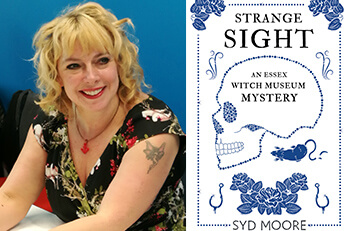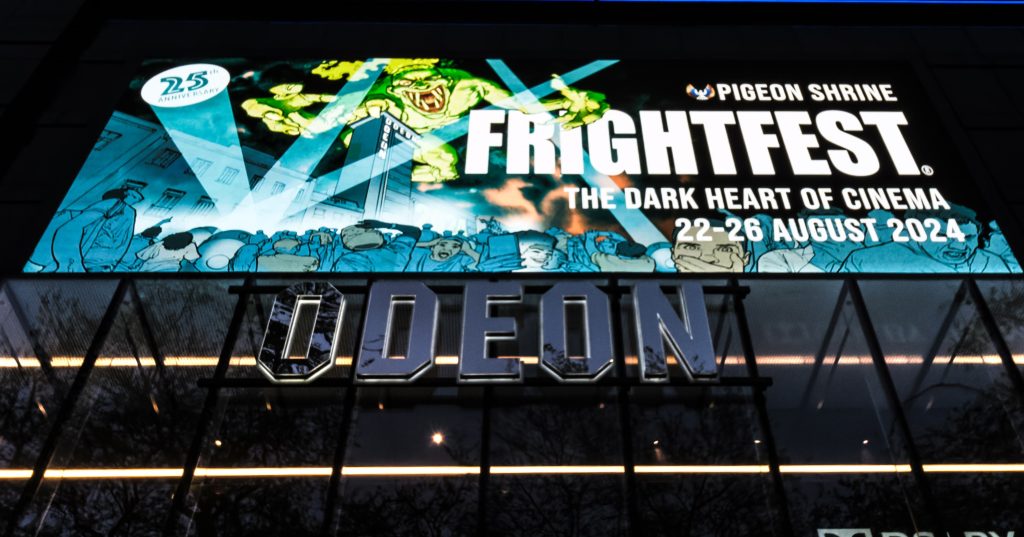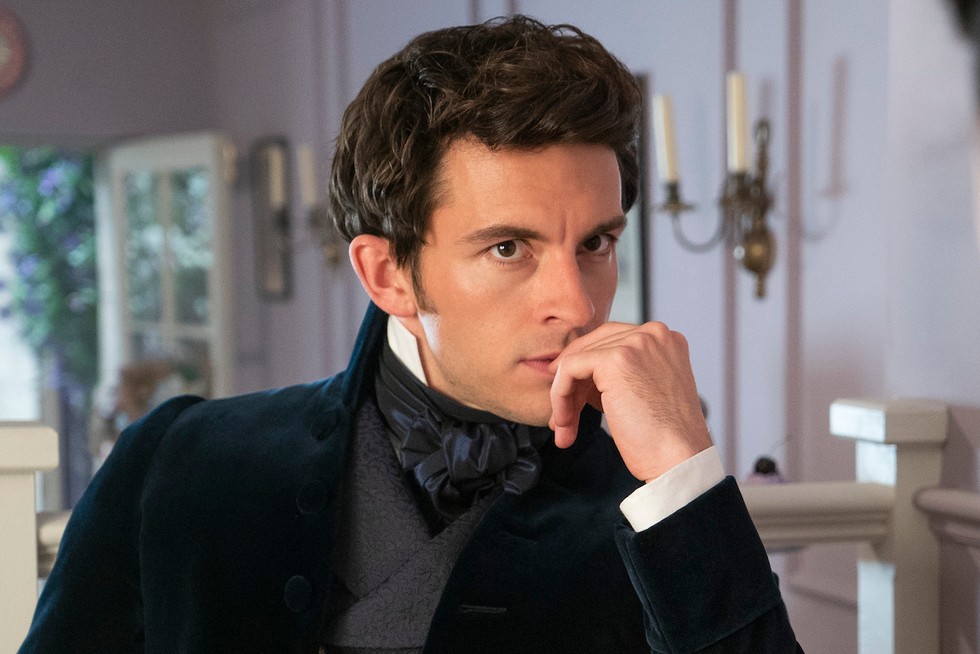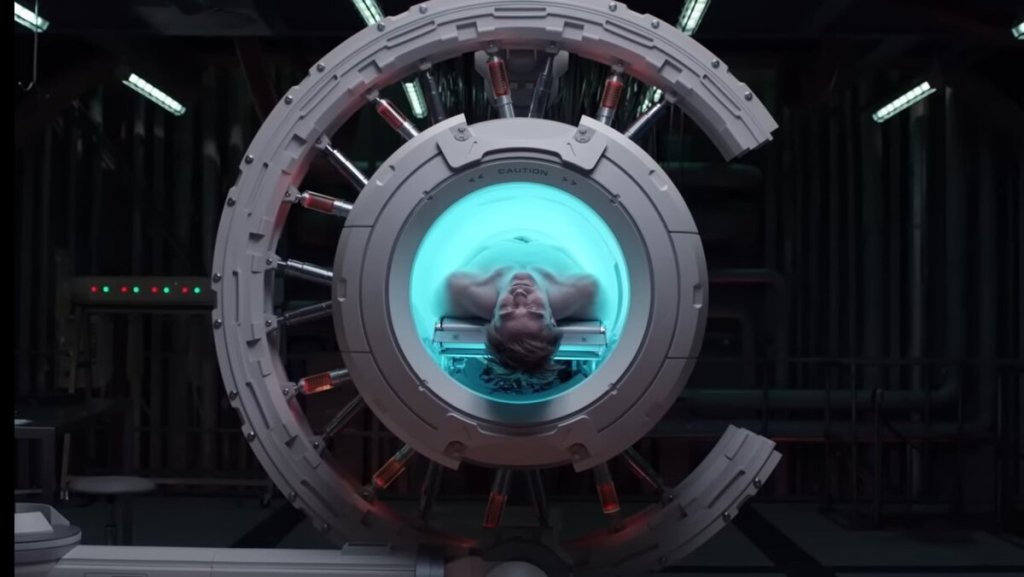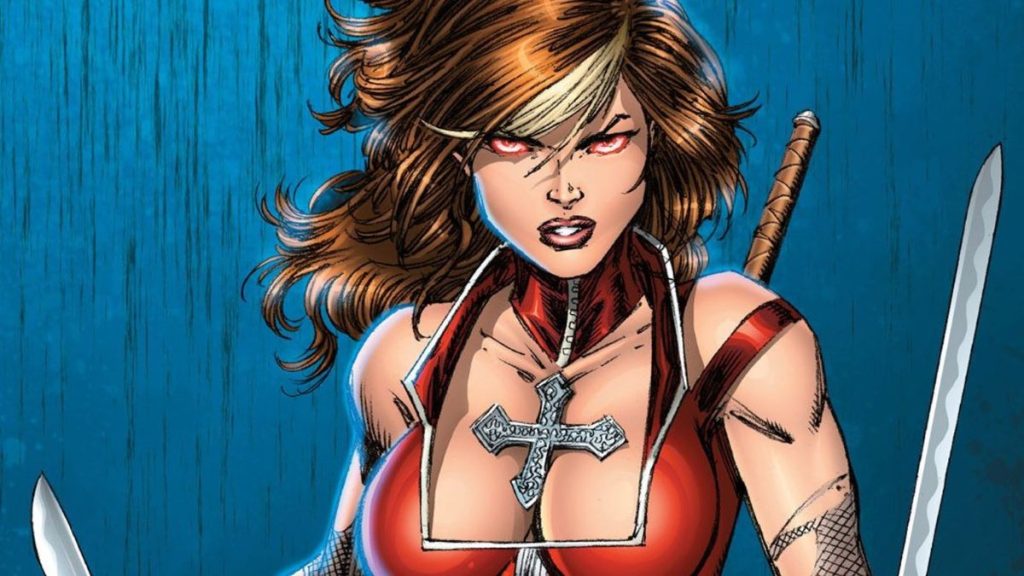 If you’re keeping up with our book reviews, it probably hasn’t escaped your notice that we are massive fans of Syd Moore’s Rosie Strange series. The first book, Strange Magic, was a breath of fresh air for a genre that is often mustier and more cobweb-ridden than the proverbial haunted house, and the latest – the recently published Strange Sight – builds masterfully upon Strange Magic‘s success with chills, dry humour and a powerful social message at its core.
If you’re keeping up with our book reviews, it probably hasn’t escaped your notice that we are massive fans of Syd Moore’s Rosie Strange series. The first book, Strange Magic, was a breath of fresh air for a genre that is often mustier and more cobweb-ridden than the proverbial haunted house, and the latest – the recently published Strange Sight – builds masterfully upon Strange Magic‘s success with chills, dry humour and a powerful social message at its core.
Syd, whose eclectic career has also included marketing and PR, lecturing in publishing and presenting the Channel 4 book programme Pulp, was kind enough to take time off from writing the third (but hopefully not final) Rosie Strange adventure to talk to us about writing, witchcraft, Super Strumps, and Essex girls.
STARBURST: Rosie Strange is an Essex girl, as are the leading characters in your earlier books The Drowning Pool and Witch Hunt. Where does your fascination with the Essex girl come from?
Syd Moore: Being an Essex girl myself, I had to put up with an awful lot of shit during the eighties and pretty much from that point onwards. I lived in London for quite a long time and when I moved back to Essex about fourteen years ago and started lecturing at the local college I was blown away by the fact that the girls, after they’d gone off for a university interview, would often come back and say the guys who’d been interviewing them had looked at their details and opened with, “Ah, so you’re an Essex girl are you?” I don’t think it was meant to be a jab, it was meant to be amusing, an ice-breaker, but it left that student with two options: one was to challenge the interviewer’s idea of a stereotype (although they want to get into this educational establishment so they don’t want to start off with conflict) or the other option was to just giggle inanely and confirm the stereotype. So I started writing articles about the Essex girl for a magazine, asking the question – when you get away from the eighties Essex girl stereotype, is she actually in the 21st century just a sexually autonomous and liberated woman? And then I got together with a local artist called Heidi Wigmore and we made a pack of cards that looked at the Essex girl and all the different female stereotypes and examined them in a more positive way. We called the game Super Strumps, to spoof the whole Top Trumps thing.
One of the things that I’ve been aware of as I’ve made my journey through life is that if you’ve got a message and you want things to change you can’t just shout about it or bang on about it because people turn off, they won’t listen. But if you can do it with humour and get people to realise you’re not confronting them, you’re opening a conversation with them and they can laugh about it, they’re much more susceptible to the messages you’re trying to work with. So, in Super Strumps, the Essex girl’s positives are things like drinking capacity and being immune to cold whereas the career woman can penetrate glass ceilings and the old biddy can turn invisible at will. Using humour to get your message across in a non-confrontational way is really important and that’s one of the things I wanted to work within Strange Magic, so that I can get my message out to as big an audience as I possibly can.
So where is the link between Essex girls and witches?
When I started researching the witch hunts and looked at the characteristics of the women who were accused, a lot of them had bastard children and were very poor, most of them were on the lower end of the social scale and pretty much uneducated, and they were termed ‘loose women’. At that time ‘loose’ meant not being under the protection or control of a man. So, after thinking about that and how Essex was popularly known as ‘witch county’, I wondered if the stigma that was attached to the women and witches of Essex – who were notorious throughout the UK and across the continent – had never really gone, but just mutated. The Essex girl arrived because there was already this feeling that there was something a bit dirty and low class about the women of Essex and, just like the witch, the Essex girl challenges the norms of social behaviour. She is quite threatening to a lot of men and quite threatening to other women.
Why do you think Essex was such a hotbed for witches?
There are lots of theories: one idea is that it was cut off and very rural but at the same time people were using the waterways to get around – maybe traders brought back stories of the witch hunts that were happening over on the continent? There’s also a theory about ergot poisoning, although I don’t think that’s fashionable anymore. If you drill down into the statistics there are witch finders at the heart of all of this – Matthew Hopkins the ‘Witchfinder General’ was one, and then, before him, it was Brian Darcy. They ripped it up. Essex had more indictments for witchcraft than in any other part of the UK except for Scotland so maybe it was because of men like those, who were happy to go in and stir up these wild accusations.
A huge amount of research goes into your books. When you’re putting a new story together, how do you begin winding the fact into the fiction?
My progress through the historical stories has always been quite organic. When I was writing The Drowning Pool I was interested in the real-life ‘sea witch’ Sarah Moore (no relation) who I renamed Sarah Grey in the book. I first heard about Sarah Moore when a pub with her name opened in Leigh so I wanted to learn more and found out about the legend. After that, I started doing research into her, and asking at the heritage centre, and eventually, I found her burial registration at the records office. That gave me a concrete date to begin looking into her story.
When I first started researching Sarah, I found the statistic that between 1580 and 1690 there were 222 indictments for witchcraft in Hertford, Kent, Surrey and Sussex, but in Essex, there were 503. So I drilled down and found Matthew Hopkins, who eventually became my story for Witch Hunt, and while I was researching the Hopkins hysteria I came across Ursula Kemp who I decided to use for Strange Magic. Originally Strange Magic was called The Skeleton Key but when Oneworld bought it they wanted to turn it into a series – at that point, I was a bit witched out! For Strange Sight, I wanted to write a story about a really nasty, malevolent ghost and when I researched Elizabeth Brownrigg and found out about her crimes and the cruelty she inflicted, how she would exploit the charges from the foundling hospital, it occurred to me that this is still going on. When you look at the witch hunts and our hysteria and fear of the other, how we demonise certain people and exploit the most vulnerable, it’s still happening right now.
In Strange Fascination, which I’m writing at the moment, I’m looking at the story of another witch who actually existed – Anne Hughes, who lived in Great Leighs in Essex. She was burned at the stake and then they buried her remains and rolled a boulder across them to prevent her from rising again. The boulder’s in the carpark of a pub called The Castle in Great Leighs. When the Americans took over part of the pub during the Second World War they moved the boulder to bring their lorries on and allegedly unleashed all this rampant poltergeist activity. The ghost hunter Harry Price went down to investigate it.
Is the research your favourite part of writing a book?
I kind of love it all really. I’m a very sociable person so because I spend days and days in my little box room not seeing anybody, doing the research gets me out and about talking to people and interviewing people and it’s really good for my personality. I’ve always been intrigued by folklore and mythology and it’s fantastic to go to these eerie places and learn more about them. I love that part of it.
I also really like the characters of Rosie and Sam. It’s nice to spend time in their company.
Even though Strange Sight only takes place a few weeks after the events of Strange Magic you can see the development in Rosie and Sam’s relationship.
I’m glad you felt that. I like writing them and seeing how they react. There’s that writer’s cliché where you tell the characters what to do but then they react in a completely different way to what you were expecting. With Rosie, I picture her in my head and I just watch and listen – I’ll see Rosie kick something over and walk off and Sam roll his eyes. They develop a mind of their own. Sometimes I think I’m a bit of a channel for them. Was it Keith Richards who said about writing songs “I just catch them, they’re already there.” I think I do that a little bit with Rosie and Sam.
Did you already have an arc in mind when you wrote Strange Magic?
I did have a sense of arc. I knew it would be three books and I wanted to explore and develop the characters of Rosie and Sam and look into both of their backstories, to place them in time and investigate how people can be products of their families and background, how they reflect the past but are also very much of the present. And also how they change and react to their environment and how that shapes them. A bit of nature vs nurture I guess.
Bowie died while I was writing Strange Magic and I was listening to a lot of his songs. I kept coming back to ‘Changes’. I think the line “Turn and face the Strange” influenced me a fair bit! But there was much in that song, that jumped out as a perfect soundtrack for the Strange trilogy. I knew I wanted the third book to be titled Strange Fascination and that was also because of, amongst other things, the line “Strange fascination fascinating me”, which, I felt, resonated with the themes of the unexplored, the paranormal and the mysterious. I knew Rosie was going to become initially involved with them with great reluctance. But that her relationship with the external world and the nebulous would change her. I guess I wanted to say that it’s okay to be awed and floored and to live in a world where not everything has an answer like they tell you it does at school. Wonder is a beautiful thing. For Rosie, opening herself up and allowing herself to experience this with less prejudice, becomes formative. Her life becomes less ordinary, less mundane but more complex and problematic. But not bad. Certainly, at the beginning of the book, she is quite self-reliant and self-contained. As she moves through the stories she becomes more sensitized to other people’s pain, their conflicts and cruelties, but also finds herself more aware of some of the amazing human qualities that exist in our world – warmth, fun, laughter, fellowship and love.
So we’re going to find out much more about Rosie’s backstory in the next book?
Yes, we are. I’m really enjoying writing it. I’ve also been researching the MI6 occult bureau and Cecil Williamson, who had dealings with Otto Rahn, who was one of the architects of the Third Reich and very into the occult. That whole idea – that there was a black magic department in the government – I find really, really fascinating and we can research that area a little bit more freely now because the D notices are being taken off certain papers. These are very interesting times for looking at that period.
I’ll also be looking more at the idea of glamour, which I touched on in Strange Sight (note: in supernatural terms, glamour is an illusion cast by witches). The whole history of glamour is really interesting – glamour, artifice and dark deeds, and how it was a part of fairy magic. I’ve been looking at fairy myths where people have been glamoured and it’s fascinating.
Do you believe in the paranormal? Have you ever been on a paranormal investigation?
No, but I’d love to do an investigation and I’ve done research with people who have. I’m sensitive to atmosphere – I think we all are – and I think there are places all over the world where you can sense something. I have no idea where it comes from and I’m kind of like Rosie in that I have an open mind and a healthy scepticism – well, actually Sam’s more like that – but I think atheism is very arrogant, to close your mind to possible arguments about things that we haven’t discovered yet. I think that’s just as blinding as absolute faith. Things aren’t black and white, they are nuanced and lots of different shades of grey.
At the moment we’re in a very reductive problematic place – it’s all very binary – and nuance, sophistication, intricacy and complexity aren’t things we should be afraid of. Not to be open to argument is really dangerous.
In the Rosie Strange series, I always try to explain the supernatural phenomena, so there is an ‘is it or isn’t it?’ uncertainty that lets people come down on either side – for me, in the writing, I definitely think there are other forces at play that are helping to shape the other characters in the book. Rosie and Sam’s character arcs are changing. Rosie is a benefits fraud inspector so she can be quite reductive, so I wanted her to be a contradiction in herself – partly witch finder and partly witch because a benefits fraud inspector isn’t a million miles away from the witchfinder! She is incredibly insightful and perceptive and possibly developing powers that she doesn’t think exists. So I’m constantly playing with her self-awareness and how she’s perceived by other people.
Why do you think the series has hit such a chord with readers?
I’m really intrigued by ghosts, myths and legends and lots of the moments I put into my stories are things that have happened to me – where you see something but you’re not sure if you’ve seen it, or you have an odd experience and you try to find a rational way to explain it. I think there are bits in the books that people can relate to because they’ve done it themselves. I also think we have a lot to learn from history, and that it’s important to examine history and realise we need to learn and grow and sometimes change our behaviour.
But I really want my readers to have fun and enjoy a good story, to have a bit of a laugh but also be thrilled in that classic M.R. James ghost story sort of way. It’s not all about grimness and nastiness, it’s about bringing all of those elements together so I can talk about things that are important to me and also give people a bloody good time!
STRANGE SIGHT is available now.

